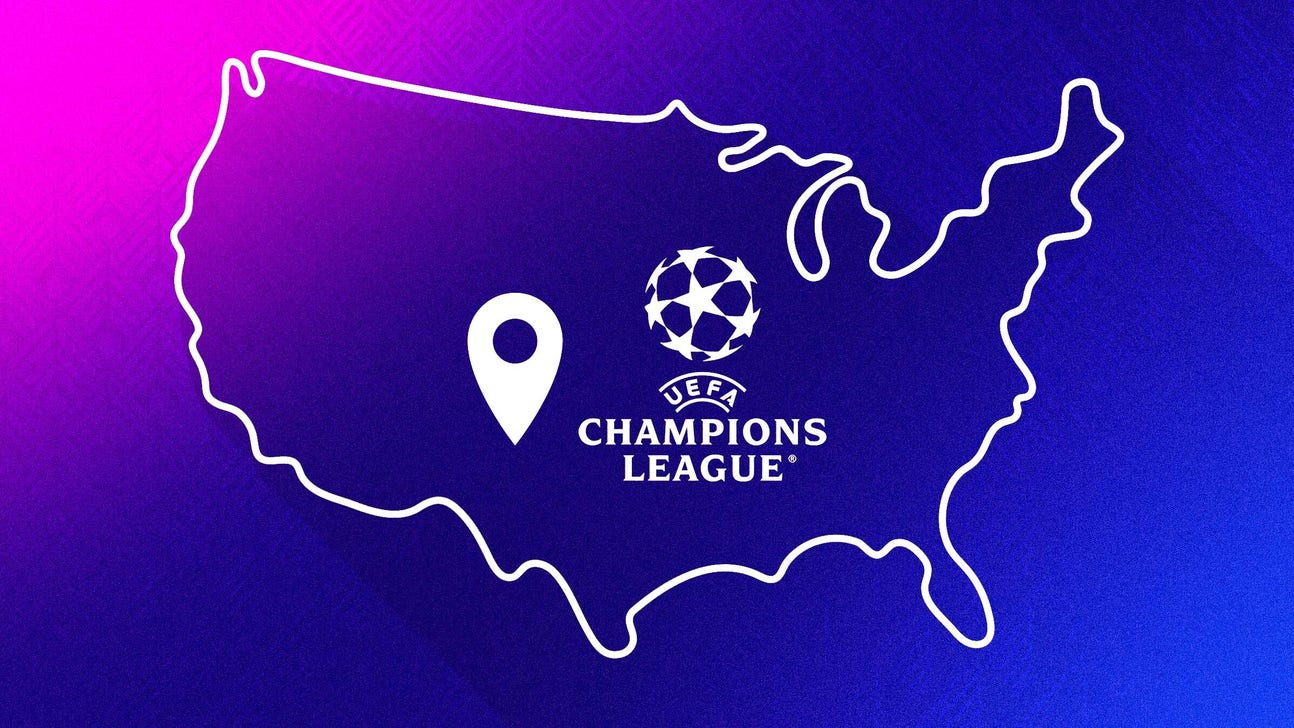
Why a U.S.-hosted UEFA Champions League final is no sure thing
The UEFA Champions League resumes Tuesday with a marquee semifinal matchup between current trophy holder Real Madrid and 2023 title favorite Manchester City. Next month’s grand finale in Istanbul is now very much in sight.
That all-or-nothing match, easily the biggest in the club game, is sometimes referred to as the "Super Bowl of Soccer," though that tag hardly summarizes its magnitude; the Champions League final’s average worldwide television audience of about 400 million is more than 50% higher than that of the NFL’s most-watched event.
It’s no surprise then that UEFA, European soccer’s governing body, wants to take its most celebrated match not only beyond the continent’s borders but also to the richest market in the world: the United States.
"It is possible," UEFA president Aleksander Čeferin said two weeks ago when asked on the "Men in Blazers" podcast about the potential for a future Champions League final in the U.S.
"Football is extremely popular in [the] United States these days," he added. "Americans are willing to pay [high ticket prices] for the best."
Čeferin is right. There is a lot of cash to be made stateside off the world’s most popular sport. Especially at the top level. America’s sheer financial might is a major reason the World Cup is coming back to the U.S. (along with Canada and Mexico) in 2026. Money is primarily why the U.S. will, for the second time in eight years, guest host the Copa América, South America’s championship for national teams, next summer. Of course UEFA wants a piece of the action.
In some ways, it’s really nothing new. Brand-name European clubs have for decades been packing NFL stadiums for summer exhibition matches. But playing competitive, meaningful games — let alone a Champions League final — has long been the line drawn by FIFA, which argues that for the good of the sport it must help protect the integrity of and investment in domestic competitions, in this case MLS, from outside barnstormers.
The issue is at the center of an antitrust lawsuit jointly filed against FIFA and the U.S. Soccer Federation by longtime American soccer promoter Relevent Sports, which claims it was unfairly prevented from organizing a Spanish La Liga match between Barcelona and Girona in Miami in 2018. FIFA policy generally forbids official games from taking place outside the participating clubs’ "home territory" without blessing of the host federation. In March, a U.S. appeals court ruled that the case could proceed to trial.
The outcome will be watched closely by executives across the soccer world. It could open the door for a Champions League final to eventually be played in New York, Los Angeles or another major American city.
In time, it could happen anyway. Already there has been talk of UEFA members competing in an expanded CONCACAF Gold Cup in 2025, which could lead to further collaboration between the European and North American confederations. The lure of significant additional revenue could be too attractive not to end in a compromise that benefits both. Yet with FIFA also determined to host an expanded Club World Cup in 2025 — and possibly also stage that tourney in the U.S. — it has little incentive to sign off on a U.S.-hosted Champions League final unless the courts say it must.
With UEFA having already named the host cities for the 2024 (London) and 2025 (Munich) editions, it couldn’t happen before 2026 anyway. There’s limited appetite for it inside FIFA as things stand.
CONCACAF president and FIFA VP Victor Montagliani all but dismissed the idea out of hand when asked about the possibility during an interview with FOX Sports late last year.
"I don’t see how European fans would want that," Montagliani said. "It’s their continental final — why would you play it outside of Europe?
"You wouldn’t play the Super Bowl in Frankfurt."
Doug McIntyre is a soccer writer for FOX Sports. Before joining FOX Sports in 2021, he was a staff writer with ESPN and Yahoo Sports, and he has covered United States men’s and women’s national teams at multiple FIFA World Cups. Follow him on Twitter at @ByDougMcIntyre.

